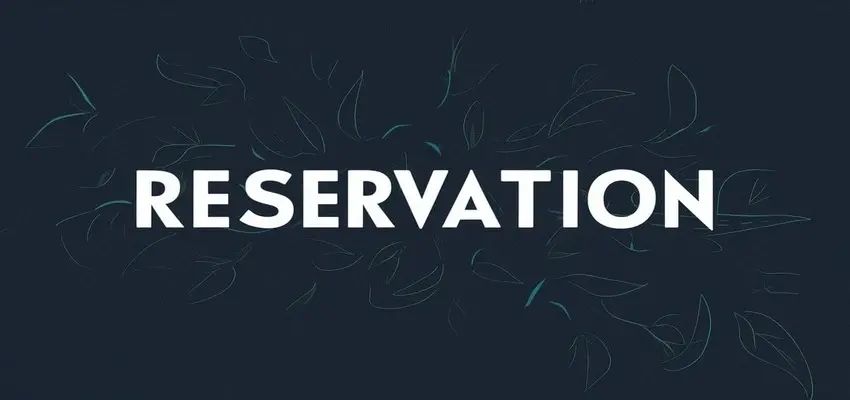What is reservation with example?

What is Reservation?
Reservation is the process of admission to seats in various legislatures, government jobs, and enrollment in higher educational institutions through the process of reservation for the members of the castes, ethnic groups, or genders that are socially and politically most backward.
The main rationale for the reservation system is to improve the social, political, and educational status and affirmative action for the communities that for a long period suffered discrimination. It seeks to help address the huge developmental disparities that exist between the targeted vulnerable groups and the larger community.
The concept of providing reservations was initially implemented in India during British rule through the Government of India Act 1935. Subsequently, it was carried forward through Articles 15 and 16 of the Indian Constitution Thanks to these articles, the state can provide special measures for the benefit of any socially and educationally backward classes of citizens or the Scheduled Castes and the Scheduled Tribes.
Since independence, the reservation system has been amended, and developed over constitutional provisions, executive orders, legislation, and court judgments. The reservation policy at present encompasses a quota system for the representation of the SCs, STs, and OBCs in the Lok Sabha, State Legislatures, government jobs and civil services, and educational institutions.
Reservation in India means providing premium treatment to some sections of society while discriminating against the rest of the lot some key examples include:
1. Reservation in Legislatures
- Lok Sabha & State Legislatures: Out of a total of 545 members in the Lok Sabha, 479. 5 are reserved for SCs/STs/OBCs in their respective ratio. The same reservation exists in the State Legislatures.
- Panchayati Raj Institutions: 50 percent ST/SC reservation in PRIs, 33 percent reservation for women. Proportionate reservation for SCs/STs.
2. Reservation in Government Jobs
- For the persons belonging to the SC category, there is a 15% reservation in the state government services and promotions; for the ST category, the quota is 7. 5%.
- 20% and 27% quotas for OBCs respectively in central government jobs and educational institutes. Some state governments have also given reservations to OBCs in state government employment and educational facilities.
3. Reservation in Educational Institutions
- Central Educational Institutions: They are as follows – 15% for SC, 7. 5% for ST and 27% for OBC candidates.
- State Educational Institutions: The reservation % in each state depends on the state laws and policies existing in the particular state.
Several points can be made in support of Reservation.
1. Corrects Historic Injustice: It makes up for lost opportunities about caste and ethnicity that these communities have been shut out from for centuries.
2. Bridging Social Divides: Improves your socioeconomic status and political power to reduce social gaps in the long run.
3. Counters Discrimination: Serves as an antidiscrimination safeguard in a hierarchized society where weaker segments may still experience it.
4. Supports Nation Building: Contributes to garnering legitimacy and investment by diverse groups necessary for the cohesiveness and viability of the nation.
Arguments Against Reservation
1. Compromises Meritocracy: It is also quite unfair to reserve any opportunity in an organization for any post or position based on the color of their skin and not on merit.
2. Perpetuates Caste System: That is regarding the policies that are formulated just in the name of caste, it only strengthens the caste structure and people start identifying themselves on those lines.
3. Benefits of the Creamy Layer: A few of the top needy minority groups in society get all the benefits while the rest are not reached at all.
4. Promotes Mediocrity: This can lead to the selection of individuals of lower capability, thereby having an impact on the standards of governance and competitiveness of the nation.
Way Forward
As it will be seen there are reasonable grounds for advocating for as well as against reservation. The current situation therefore demands that a more balanced and moderate action plan be implemented in the future. Here are some suggestions in this regard: Here are some suggestions in this regard:
1. Reservation Criteria: It is suggested that the criteria for selecting marginalized families should not be limited to caste alone but some liberal economic criteria should be incorporated so that the poor families from the reserved categories do not monopolize all the quotas.
2. Periodic Review: There should be certain time and/or event-based review processes to check whether the communities that no longer require reservation are still receiving the benefits because of vote bank politics.
3. Focus on Primary Education: The real answer is found in addressing gaps that deny marginalized communities meaningful access to basic services like primary education, healthcare, and skills development. That is why the amount of reserves at higher levels does not have a significant effect.
4. Countering Discrimination: To stamp out caste discrimination, especially in the employment sector and real estate, stronger measures are required than reservations.
It also remains critical in the fight for equity and diversity to ensure that specific groups have a voice in the decision-making process. However, it should not be allowed to become static but rather should be dynamically evolved considering the overall aim of improving the standards of living and well-being of these communities rather than being used as a tool for political mileage by all the stakeholders. The future thus requires a balanced, flexible, and compassionate approach towards employees and consumers.
Call us at +1 8339022090 to secure the best deals on flight tickets today. Don't miss out on unbeatable prices for your next adventure!
